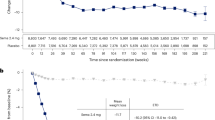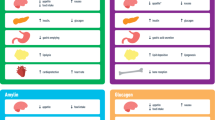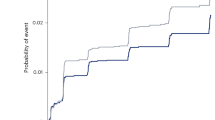Abstract
Obesity-related hypertension (OH) is accompanied by obvious endothelial dysfunction, which contributes to increased peripheral vascular resistance and hypertension. Adrenomedullin (ADM), a multifunctional active peptide, is elevated in obese humans. The OH rats induced by high fat diet (HFD) for 28 weeks and the human umbilical vein endothelial cells (HUVECs)-treated by palmitic acid (PA) were used to investigate the effects of ADM on endothelial dysfunction and the underlying mechanisms. Vascular reactivity was assessed using mesenteric arteriole rings, and the protein expression levels were examined by Western blot analysis. Compared with the control rats, OH rats exhibited hypertension and endothelial dysfunction, along with reduced eNOS protein expression and Akt activation, and increased protein expression of proinflammatory cytokines and ROS levels. Four-week ADM administration improved hypertension and endothelial function, increased eNOS protein expression and Akt activation, and attenuated endothelial inflammation and oxidative stress in OH rats. In vitro experiment, the antagonism of ADM receptors with ADM22-52 and the suppression of Akt signaling with A6730 significantly blocked ADM-caused increase of NO content and activation of eNOS and Akt, and inhibited the anti-inflammatory and anti-oxidant effect of ADM in PA-stimulated HUVECs. These data indicate that endothelial dysfunction in OH rats is partially attributable to the decreased NO level, and the increased inflammation and oxidative stress. ADM improves endothelial function and exerts hypotensive effect depending on the increase of NO, and its anti-inflammatory and anti-oxidant effect via receptor-Akt pathway.

This is a preview of subscription content, access via your institution
Access options
Subscribe to this journal
Receive 12 print issues and online access
$259.00 per year
only $21.58 per issue
Buy this article
- Purchase on Springer Link
- Instant access to full article PDF
Prices may be subject to local taxes which are calculated during checkout







Similar content being viewed by others
Data availability
The data of this study will be available from the authors according to reasonable requests.
References
Lin X, Li H. Obesity: Epidemiology, Pathophysiology, and Therapeutics. Front Endocrinol (Lausanne). 2021;12:706978.
Piche ME, Tchernof A, Despres JP. Obesity Phenotypes, Diabetes, and Cardiovascular Diseases. Circ Res. 2020;126:1477–1500.
Seravalle G, Grassi G. Obesity and hypertension. Pharm Res. 2017;122:1–7.
Silveira Rossi JL, Barbalho SM, Reverete de Araujo R, Bechara MD, Sloan KP, Sloan LA. Metabolic syndrome and cardiovascular diseases: Going beyond traditional risk factors. Diabetes Metab Res Rev. 2022;38:e3502.
Virdis A, Neves MF, Duranti E, Bernini G, Taddei S. Microvascular endothelial dysfunction in obesity and hypertension. Curr Pharm Des. 2013;19:2382–9.
Gallo G, Volpe M, Savoia C. Endothelial Dysfunction in Hypertension: Current Concepts and Clinical Implications. Front Med (Lausanne). 2021;8:798958.
Gao J, Pan X, Li G, Chatterjee E, Xiao J. Physical Exercise Protects Against Endothelial Dysfunction in Cardiovascular and Metabolic Diseases. J Cardiovasc Transl Res. 2022;15:604–20.
Jebari-Benslaiman S, Galicia-Garcia U, Larrea-Sebal A, Olaetxea JR, Alloza I, Vandenbroeck K, et al. Pathophysiology of Atherosclerosis. Int J Mol Sci. 2022;23:3346.
Cyr AR, Huckaby LV, Shiva SS, Zuckerbraun BS. Nitric Oxide and Endothelial Dysfunction. Crit Care Clin. 2020;36:307–21.
Mallick R, Duttaroy AK. Modulation of endothelium function by fatty acids. Mol Cell Biochem. 2022;477:15–38.
Rana MN, Neeland IJ. Adipose Tissue Inflammation and Cardiovascular Disease: An Update. Curr Diab Rep. 2022;22:27–37.
Engin A. Endothelial Dysfunction in Obesity. Adv Exp Med Biol. 2017;960:345–79.
Marziano C, Genet G, Hirschi KK. Vascular endothelial cell specification in health and disease. Angiogenesis. 2021;24:213–36.
Fernandez-Sanchez A, Madrigal-Santillan E, Bautista M, Esquivel-Soto J, Morales-Gonzalez A, Esquivel-Chirino C, et al. Inflammation, oxidative stress, and obesity. Int J Mol Sci. 2011;12:3117–32.
Iantorno, M; Campia, U; Di Daniele, N; Nistico, S; Forleo, GB; Cardillo, C; et al. Obesity, inflammation and endothelial dysfunction. (0393-974X (Print)).
Chrysant SG. Pathophysiology and treatment of obesity-related hypertension. J Clin Hypertens (Greenwich). 2019;21:555–9.
Cohen JB, Gadde KM. Weight Loss Medications in the Treatment of Obesity and Hypertension. Curr Hypertens Rep. 2019;21:16.
Cheung BM, Tang F. Adrenomedullin: exciting new horizons. Recent Pat Endocr Metab Immune Drug Discov. 2012;6:4–17.
Hay DL, Garelja ML, Poyner DR, Walker CS. Update on the pharmacology of calcitonin/CGRP family of peptides: IUPHAR Review 25. Br J Pharm. 2018;175:3–17.
Kato J, Kitamura K. Bench-to-bedside pharmacology of adrenomedullin. Eur J Pharm. 2015;764:140–8.
Metwalley KA, Farghaly HS, Sherief T. Plasma adrenomedullin level in children with obesity: relationship to left ventricular function. World J Pediatr. 2018;14:84–91.
Nomura I, Kato J, Tokashiki M, Kitamura K. Increased plasma levels of the mature and intermediate forms of adrenomedullin in obesity. Regul Pept. 2009;158:127–31.
Theuerle J, Farouque O, Vasanthakumar S, Patel SK, Burrell LM, Clark DJ, et al. Plasma endothelin-1 and adrenomedullin are associated with coronary artery function and cardiovascular outcomes in humans. Int J Cardiol. 2019;291:168–72.
Hosomi N, Ohyama H, Takahashi T, Shinomiya K, Naya T, Ban CR, et al. Plasma adrenomedullin and carotid atherosclerosis in atherothrombotic ischemic stroke. J Hypertens. 2004;22:1945–51.
Yuyun MF, Narayan HK, Quinn PA, Struck J, Bergmann A, Hartmann O, et al. Prognostic value of human mature adrenomedullin in patients with acute myocardial infarction. J Cardiovasc Med (Hagerstown). 2017;18:42–50.
Voors AA, Kremer D, Geven C, Ter Maaten JM, Struck J, Bergmann A, et al. Adrenomedullin in heart failure: pathophysiology and therapeutic application. Eur J Heart Fail. 2019;21:163–71.
Yuan M, Wang Q, Li C, Tao L, Zhang H, Wang H, et al. Adrenomedullin in Vascular Endothelial Injury and Combination Therapy: Time for a New Paradigm. Curr Vasc Pharm. 2015;13:459–66.
Murakami S, Kimura H, Kangawa K, Nagaya N, Physiological significance and therapeutic potential of adrenomedullin in pulmonary hypertension. (1871-529X (Print)).
Makino I, Shibata K, Makino Y, Kangawa K, Kawarabayashi T. Adrenomedullin attenuates the hypertension in hypertensive pregnant rats induced by N(G)-nitro-L-arginine methyl ester. Eur J Pharm. 1999;371:159–67.
Geven C, Bergmann A, Kox M, Pickkers P. Vascular Effects of Adrenomedullin and the Anti-Adrenomedullin Antibody Adrecizumab in Sepsis. Shock. 2018;50:132–40.
Yanagawa B, Nagaya N. Adrenomedullin: molecular mechanisms and its role in cardiac disease. Amino Acids. 2007;32:157–64.
Hamid SA, Baxter GF. A critical cytoprotective role of endogenous adrenomedullin in acute myocardial infarction. J Mol Cell Cardiol. 2006;41:360–3.
Fung E, Fiscus RR. Adrenomedullin induces direct (endothelium-independent) vasorelaxations and cyclic adenosine monophosphate elevations that are synergistically enhanced by brain natriuretic peptide in isolated rings of rat thoracic aorta. J Cardiovasc Pharm. 2003;41:849–55.
Qian P, Wang Q, Wang FZ, Dai HB, Wang HY, Gao Q, et al. Adrenomedullin Improves Cardiac Remodeling and Function in Obese Rats with Hypertension. Pharm (Basel). 2022;15:719.
Estrada IA, Donthamsetty R, Debski P, Zhou MH, Zhang SL, Yuan JX, et al. STIM1 restores coronary endothelial function in type 1 diabetic mice. Circ Res. 2012;111:1166–75.
Konior A, Schramm A, Czesnikiewicz-Guzik M, Guzik TJ. NADPH oxidases in vascular pathology. Antioxid Redox Signal. 2014;20:2794–814.
Boden G. Obesity and free fatty acids. Endocrinol Metab Clin North Am. 2008;37:635–46. viii-ix
Wang M, Chen Y, Xiong Z, Yu S, Zhou B, Ling Y, et al. Ginsenoside Rb1 inhibits free fatty acids‑induced oxidative stress and inflammation in 3T3‑L1 adipocytes. Mol Med Rep. 2017;16:9165–72.
Zhang S, Patel A, Moorthy B, Shivanna B. Adrenomedullin deficiency potentiates hyperoxic injury in fetal human pulmonary microvascular endothelial cells. Biochem Biophys Res Commun. 2015;464:1048–53.
Shimosawa T, Shibagaki Y, Ishibashi K, Kitamura K, Kangawa K, Kato S, et al. Adrenomedullin, an endogenous peptide, counteracts cardiovascular damage. Circulation. 2002;105:106–11.
Shimosawa T, Ogihara T, Matsui H, Asano T, Ando K, Fujita T. Deficiency of adrenomedullin induces insulin resistance by increasing oxidative stress. Hypertension. 2003;41:1080–5.
Ashizuka S, Kita T, Inatsu H, Kitamura K. Adrenomedullin: A Novel Therapeutic for the Treatment of Inflammatory Bowel Disease. Biomedicines. 2021;9:1068.
Gadkari TV, Cortes N, Madrasi K, Tsoukias NM, Joshi MS. Agmatine induced NO dependent rat mesenteric artery relaxation and its impairment in salt-sensitive hypertension. Nitric Oxide. 2013;35:65–71.
Cottam MA, Caslin HL, Winn NC, Hasty AH. Multiomics reveals persistence of obesity-associated immune cell phenotypes in adipose tissue during weight loss and weight regain in mice. Nat Commun. 2022;13:2950.
Kiran S, Rakib A, Kodidela S, Kumar S, Singh UP. High-Fat Diet-Induced Dysregulation of Immune Cells Correlates with Macrophage Phenotypes and Chronic Inflammation in Adipose Tissue. Cells. 2022;11:1327.
Steven S, Dib M, Hausding M, Kashani F, Oelze M, Kröller-Schön S, et al. CD40L controls obesity-associated vascular inflammation, oxidative stress, and endothelial dysfunction in high fat diet-treated and db/db mice. Cardiovasc Res. 2018;114:312–23.
Matson BC, Caron KM. Adrenomedullin and endocrine control of immune cells during pregnancy. Cell Mol Immunol. 2014;11:456–9.
Han J, Wan Q, Seo GY, Kim K, El Baghdady S, Lee JH, et al. Hypoxia induces adrenomedullin from lung epithelia, stimulating ILC2 inflammation and immunity. J Exp Med. 2022;219:e20211985.
Nomura I, Abe J, Noma S, Saito H, Gao B, Wheeler G, et al. Adrenomedullin is highly expressed in blood monocytes associated with acute Kawasaki disease: a microarray gene expression study. Pediatr Res. 2005;57:49–55.
Ghosh A, Gao L, Thakur A, Siu PM, Lai CWK. Role of free fatty acids in endothelial dysfunction. J Biomed Sci. 2017;24:50.
Kato J, Tsuruda T, Kita T, Kitamura K, Eto T. Adrenomedullin: a protective factor for blood vessels. Arterioscler Thromb Vasc Biol. 2005;25:2480–7.
Imai Y, Shindo T, Maemura K, Sata M, Saito Y, Kurihara Y, et al. Resistance to neointimal hyperplasia and fatty streak formation in mice with adrenomedullin overexpression. Arterioscler Thromb Vasc Biol. 2002;22:1310–5.
Balakumar P, Kathuria S, Taneja G, Kalra S, Mahadevan N. Is targeting eNOS a key mechanistic insight of cardiovascular defensive potentials of statins? J Mol Cell Cardiol. 2012;52:83–92.
Bruno RM, Masi S, Taddei M, Taddei S, Virdis A. Essential Hypertension and Functional Microvascular Ageing. High Blood Press Cardiovasc Prev. 2018;25:35–40.
Acknowledgements
All the authors thank the support of the Collaborative Innovation Center of Cardiovascular Disease Translational Medicine.
Funding
This work was funded by the National Nature Science Foundation of China (81970356), the Foundation from the Department of Health of Jiangsu Province, China (LKM2023029) and the Scientific Research Project of Jiangsu Health Commission (Z2018033).
Author information
Authors and Affiliations
Corresponding authors
Ethics declarations
Conflict of interest
The authors declare no competing interests.
Consent for publication
This study is comprised of animal data without any human data.
Additional information
Publisher’s note Springer Nature remains neutral with regard to jurisdictional claims in published maps and institutional affiliations.
Rights and permissions
Springer Nature or its licensor (e.g. a society or other partner) holds exclusive rights to this article under a publishing agreement with the author(s) or other rightsholder(s); author self-archiving of the accepted manuscript version of this article is solely governed by the terms of such publishing agreement and applicable law.
About this article
Cite this article
Liu, SY., Wang, Q., Zhou, H. et al. Adrenomedullin improved endothelial dysfunction via receptor-Akt pathway in rats with obesity-related hypertension. Hypertens Res (2024). https://doi.org/10.1038/s41440-024-01701-y
Received:
Revised:
Accepted:
Published:
DOI: https://doi.org/10.1038/s41440-024-01701-y



